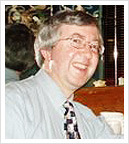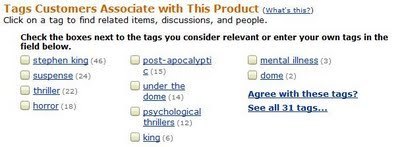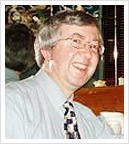How to Use Tags to Help Sell Books or E-Books on Amazon by Nick Daws
 Today, I'm thrilled to introduce you to our guest author, Nick Daws. Nick is a prolific writer with over 100 books to his credit and numerous other writing pieces. Today, Nick will be sharing his experience on how Amazon tags can help you sell your books.
Today, I'm thrilled to introduce you to our guest author, Nick Daws. Nick is a prolific writer with over 100 books to his credit and numerous other writing pieces. Today, Nick will be sharing his experience on how Amazon tags can help you sell your books. How to Use Tags to Help Sell Books or E-Books on Amazon
by Nick Daws
As you may know, tagging is one of the many methods offered by Amazon to help their customers find further titles they would enjoy.
Tags are words and phrases any Amazon customer can enter that describe a book. They can then be used by potential buyers to seek out similar books to the one they are looking at, or books on a particular theme or subject.
All you need to tag any book or e-book on Amazon is an Amazon account (you also need to have made at least one purchase at the store in question). As an example, below are the tags showing on the Amazon.com sales page for Stephen King's novel 'Under The Dome'. The number beside each tag indicates how many people have applied that particular tag to it.

Amazon tags for Under the Dome by Stephen King
If you click on any tag - 'thriller' in the list above, for example - you will be shown a list of books that have also been given that tag. The more times any particular tag has been applied, the further up the list that book will appear.
Tags are also used by Amazon to determine what titles appear in search results and 'You might also like...' recommendations, and possibly for other marketing purposes as well.
It follows that getting your book tagged can be highly beneficial. Amazon has no objection to you, as the author, tagging your own book, as doing this helps people find your title and gives them a better idea what it is about. Here are a few tips for getting the most from tagging...
* Use your own name as a tag in all your books and e-books. This will make it easier for fans of your work to find other titles you have written.
* Use specific terms that relate to your book. If it's a history of American motoring, for example, you could use tags such as Ford and Cadillac.
* With a novel, use the place where it is set as one of your tags. Many people like to read novels set in their home town or somewhere they know well. If you have multiple settings, naturally, use all of them.
* But avoid using very general terms such as 'book' or 'e-book' as tags. These won't attract people interested in your subject area, and are really a wasted opportunity.
* Sneaky tip: Use tags that have been applied to popular titles similar to yours. If you think your novel would appeal to fans of Stieg Larsson's books, for example, there is nothing to prevent you applying the tag 'Stieg Larsson' to it. Mainstream publishers do this all the time, proclaiming on their book covers that this title will appeal to fans of some other well-known author - so you will be in good company.
* Even sneakier tip: If you want to poach traffic from a popular author but can't see any tags that would be relevant to your title on their book's sales page, create a new tag - preferably something eye-catching - and apply this to both your book and that of the popular author.
Once you've applied your own tags, it will help a lot if you can get other people to add them as well. In particular, as mentioned above, the more times a particular tag is applied to a book, the higher up it will appear in search results for that term - so it's worth trying for as many tags as possible.
You can ask friends, relatives and fellow authors for their help, of course - and don't forget to tell them any particular tags you would like applied.
In addition, there are various co-operative tagging services, where authors will tag your book in exchange for you tagging theirs. One of the best - which I have used myself - is Tag My Book on Amazon. This has separate sections for Amazon.com and Amazon.co.uk - so if your title is on sale at both the US and UK sites, you can get it tagged at each one.
Happy tagging!
--------
 Nick Daws is a professional freelance writer, editor and writing teacher in the UK. He is the author of over 100 non-fiction books, as well as innumerable published articles, short stories, distance-learning courses, and more. His new guide to writing profitable e-books for the Amazon Kindle, titled Kindle Kash, will be published later this month by The WCCL Network. For more information, and to sign-up for advance notification and unique special offers, visit Nick's homepage at www.nickdaws.co.uk/kkash.htm. And don't forget to check out also his freelance writing blog at www.mywritingblog.com!
Nick Daws is a professional freelance writer, editor and writing teacher in the UK. He is the author of over 100 non-fiction books, as well as innumerable published articles, short stories, distance-learning courses, and more. His new guide to writing profitable e-books for the Amazon Kindle, titled Kindle Kash, will be published later this month by The WCCL Network. For more information, and to sign-up for advance notification and unique special offers, visit Nick's homepage at www.nickdaws.co.uk/kkash.htm. And don't forget to check out also his freelance writing blog at www.mywritingblog.com!Related Posts
Kindle Marketing Lessons Using The "Before You Go" Screen by Steven Lewis
Tips For Publishing On The Kindle By Joanna Penn
Best Selling Kindle Author Karen McQuestion Gives E-Book Advice To Authors
Review: How to Sell More Books on Amazon by Dana Lynn Smith
Searching For Book Ideas And Inspiration On Amazon.com By Roger C. Parker
-------- Tony Eldridge is the author of The Samson Effect , an action/adventure novel that Clive Cussler calls a "first rate thriller brimming with intrigue and adventure." He is also the author of the Twitter marketing book, Conducting Effective Twitter Contests .








Published on May 12, 2011 04:00
No comments have been added yet.





